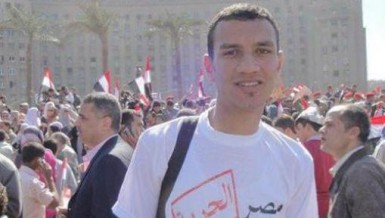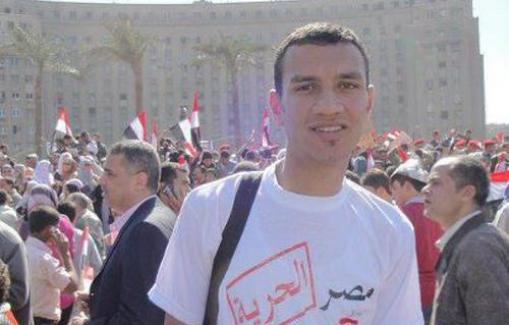
Photo: Journalist Mohamed Sabry ( Photo – Public Domain)
Six people from Suez face charges of assaulting military personnel are set to stand trial in front of a military court on Monday.
Ahmed Gharib, his father Mounir Gharib, Osama Gharib, and Nasser Abu Deif are four of the six defendants who were questioned by the military prosecution on 20 March and detained on remand for 15 days.
The trial started on April 1 and resumes on Monday. The defendants say they are facing trumped-up charges and that the case is really one of housing rights.
A testimony filmed by the No to Military Trials for Civilians movement (NoMilTrials) shows that this case began in 2012, when the Suez governor formed a committee tasked with finding housing for “special case” families and appointed Yasser Selah as its head.
Families of the detainees say they qualified under “special case” criteria and that at least 5,000 housing requests had been submitted but were refused, allegedly because there were not enough housing units available.
In January 2013 the families obtained two reports from the governorate’s social research centre demonstrating that Selah had appropriated 20 apartments from the program and sold them to acquaintances for EGP 10,000 each.
On 16 March families of the detainees occupied three vacant buildings in the “Freedom Area” neighbourhood as squatters to prove that housing units were available despite the Suez governorate’s claims.
The squatters requested the army’s presence to corroborate their case. They agreed that they would leave the buildings if asked to do so by army officers. Army officers did not order them to leave, but refused to corroborate the squatters’ claims.
Four days later the squatters were attacked by men allegedly hired by the governorate and called the army again for help, NoMilTrials member Mahmoud Salmani said.
Salmani said that the men then attacked residents of the nearby Al-Salam area, while the governorate’s media spokesperson claimed that the squatters attacked Al-Salam residents. A military police force arrested six squatters, who were charged with verbally and physically assaulting military personnel. Military police officers have testified that squatters did not assault them.
The prosecutor ordered the six to be detained on remand for 15 days and referred them to a military court. The trial started on April 1 and resumes on April 8.
Article 198 of the new constitution allows for military trials for civilians in special circumstances “as regulated by the law”. Over 12,000 civilians have faced military trials since the January 2011 uprising that toppled former president Hosni Mubarak.
There have been three military trial cases since the adoption of the constitution in December.
Sinai-based photojournalist Muhamed Sabry, who is also a member of the NoMilTrials movement, is standing trial for “entering a prohibited military zone and filming a military facility” in January.
Sabry’s trial is scheduled for a verdict session on 7 April. The court has postponed his verdict session three times.

